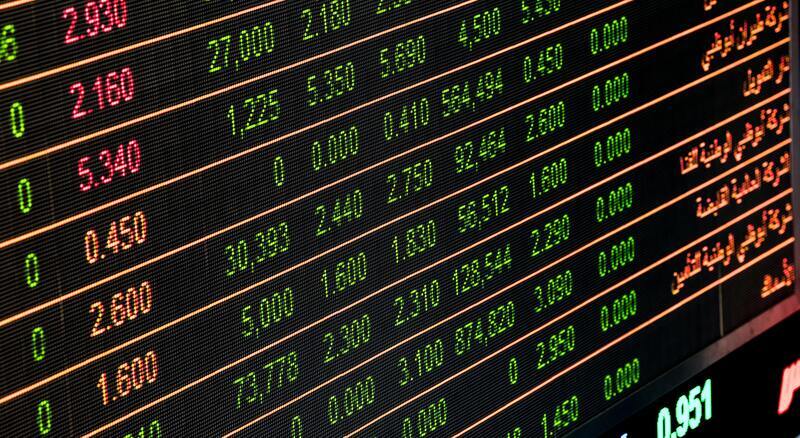The global market for halal stocks has been growing rapidly in recent years, with increasing demand from Muslim investors seeking to invest their money in a Shariah-compliant manner.
Hence, it has become more important than ever to identify the best halal stocks to invest in, the companies that align with your values and beliefs, and the potential for strong financial returns.
The purpose of this blog is to provide a comprehensive guide to investing in Halal stocks, focusing on the top halal stocks that have the potential to generate strong financial returns while remaining in compliance with Shariah law.
If you are looking to invest as an expat or high-net-worth individual, which is what I specialize in, you can email me (advice@adamfayed.com) or WhatsApp (+44-7393-450-837).
What are halal stocks, and why are they important for Muslim investors?
Halal stocks are stocks of companies that operate in compliance with Islamic principles and Shariah law.
Muslim investors are encouraged to invest their money in Halal stocks as it allows them to earn profits without compromising their religious beliefs.
In contrast to conventional investments, Halal stocks exclude companies that deal with industries such as gambling, tobacco, and alcohol or those that involve interest-based financial services.
Halal stocks are essential for Muslim investors because Islam has strict guidelines regarding money and finance.
For example, Islam prohibits the earning and payment of interest, which is why traditional banking and finance may not be acceptable to Muslims. By investing in Halal stocks, Muslim investors can ensure that their investments are in line with their beliefs and principles.
Halal stocks can also be a way for Muslim investors to support companies that have ethical and socially responsible business practices.
Many Halal stocks focus on industries such as healthcare, technology, and consumer goods, which can have a positive impact on society and the environment. Muslim investors can contribute to a more sustainable and ethical business landscape by investing in these companies.

What are the criteria for selecting the best halal stocks for investment?
The criteria for selecting the best Halal stocks for investment can vary depending on the individual investor’s goals, risk tolerance, and investment horizon. However, there are some general criteria that investors can use to evaluate Halal stocks:
The first and most important criterion for selecting Halal stocks is ensuring that the company’s business activities and financial practices comply with Shariah law.
This includes avoiding companies that deal with industries such as alcohol, gambling, and tobacco and ensuring that the company’s financial ratios and practices are Shariah-compliant.
The company’s financial performance is another critical criterion to consider when selecting Halal stocks. Investors should evaluate the company’s revenue growth, profitability, debt levels, and cash flow, among other financial metrics.
Another important criterion for selecting Halal stocks is to evaluate the industry trends and market outlook for the company’s sector. This includes assessing the company’s position in the industry, the competitive landscape, and any emerging threats or opportunities.
Halal stock investors may also want to consider companies that exhibit good corporate social responsibility practices, such as ethical business practices, social and environmental responsibility, and fair labor practices.
Lastly, investors also consider the company’s dividend yield, which can be an important factor for those seeking a regular income stream.
What are the top 5 halal stocks with strong fundamentals and poised for growth?
For Muslim investors, several big companies offer halal stocks in which they can invest. The top biggest ones are as follows:
Nestle
Nestle is a multinational food and beverage company that has a strong track record of financial performance, including consistent revenue growth, high profitability, and low debt levels. The company’s business activities are also Shariah-compliant, focusing on consumer goods and healthcare.
Microsoft
Microsoft is a technology company that offers products and services across multiple sectors, including personal computing, gaming, and cloud computing. The company has a strong financial position, high revenue growth, high profitability, and low debt levels.
Microsoft has also made efforts to comply with Shariah law, including offering a Halal certification for its cloud services.

Procter & Gamble
Procter & Gamble is a multinational consumer goods company that offers a range of products in the areas of personal care, home care, and health care.
The company has a solid financial position, consistent revenue growth, high profitability, and low debt levels. Procter & Gamble’s business activities are also compliant with Shariah law.
Visa
Visa is a financial services company that provides electronic payment services globally. The company has a strong financial position, high revenue growth, high profitability, and low debt levels.
While traditional financial services are not typically Shariah-compliant, Visa’s payment services have been reviewed and approved by Shariah scholars.
Johnson & Johnson
Johnson & Johnson is a healthcare company that offers pharmaceuticals, medical devices, and consumer health products.
The company has a strong financial position, consistent revenue growth, high profitability, and low debt levels. Johnson & Johnson’s business activities are also Shariah-compliant.
What are the potential risks and challenges of investing in halal stocks?
Like all types of investments, halal stocks have potential risks and challenges that investors should be aware of.
One of the biggest challenges of investing in halal stocks is the limited pool of potential investments. This is because halal stocks must comply with Shariah law, which prohibits certain activities and industries such as gambling, alcohol, tobacco, and interest-based transactions.
As a result, investors may have a smaller selection of stocks to choose from, which could limit their diversification and increase their exposure to risks.
Like all stocks, halal stocks can also be subject to market volatility, which means that their prices can fluctuate rapidly and unpredictably.
This can be especially challenging for investors who are not comfortable with market volatility, as it may lead to short-term losses.
While halal stocks may align with the values of Muslim investors, this may not be the case for all investors. Some investors may not be interested in halal investing or may have different values and beliefs that they prioritize in their investment decisions. As a result, halal stocks may not be suitable for all investors.
Another potential challenge of investing in halal stocks is the lack of transparency in the screening process.
While Shariah scholars and certification bodies provide guidance on what is considered compliant with Shariah law, the screening process can be complex and not always transparent. This can make it difficult for investors to assess the compliance of potential investments.
Finally, halal stocks may not always perform as well as non-halal stocks, especially in certain industries or market conditions. As a result, investors may need to be patient and take a loan.
How to screen for halal stocks?
There are several methodologies for screening halal stocks to ensure they are compliant with Shariah law.
One of the most common methods is to use financial ratios to analyze a company’s financial statements and determine whether it is engaged in any activities or industries that are not compliant with Shariah law.
It uses financial ratios for screening, which includes the Debt-to-Asset ratio. This ratio measures a company’s leverage by comparing its total debt to its total assets. Shariah law prohibits interest-based transactions, so companies with high debt levels may not comply.
The is also a current Ratio that measures a company’s ability to meet its short-term obligations. If a company’s current assets are insufficient to cover its current liabilities, it may engage in interest-based transactions to finance its operations.
Another is the Interest Income ratio which measures the proportion of a company’s income from interest-based transactions. Shariah law prohibits earning income from interest, so companies with high interest income may not be compliant.
And finally, a liquidity Ratio measures a company’s ability to meet its financial obligations. If a company has low liquidity, it may be engaging in speculative activities that are not compliant with Shariah law.
In addition to financial ratios, several screening methodologies can be used to identify halal stocks. These methodologies typically involve reviewing a company’s activities and operations to ensure they comply with Shariah law.
Some of the common screening methodologies include Negative Screening. This approach excludes companies engaged in activities or industries prohibited by Shariah law, such as alcohol, gambling, and tobacco.
There is also a Positive Screening which involves selecting companies that are engaged in activities considered beneficial or socially responsible, such as healthcare, education, and renewable energy.
Another method is the Purification approach which involves donating a portion of investment profits to charity to purify any income that may have been earned from non-compliant activities.

How to include halal stocks in your investment portfolio for diversification and better risk-adjusted returns?
Including halal stocks in your investment portfolio can help diversify your holdings and potentially improve your risk-adjusted returns.
Before investing in halal stocks, clarifying your investment goals, risk tolerance, and time horizon is important. This will help you determine the appropriate allocation for your portfolio.
There are many halal stock options available in the market. Research different companies and sectors that align with your investment goals and values.
To reduce risk, it’s important to build a diversified portfolio that includes a mix of halal and non-halal stocks, as well as other asset classes such as bonds, real estate, and commodities.
It’s also important to monitor your portfolio regularly to ensure it remains aligned with your investment goals and risk tolerance. This may involve rebalancing your holdings periodically to maintain your desired asset allocation.
If you are new to investing or uncertain about how to include halal stocks in your portfolio, consider seeking professional advice from a financial advisor knowledgeable about Shariah-compliant investing.
What is the future of halal investing and the growth potential of Halal stocks in the global market?
The future of halal investing looks promising as the global Muslim population continues to grow and demand Shariah-compliant investment products increases.
According to a report by Thomson Reuters, the global halal market is projected to reach $3.2 trillion by 2024, representing a significant opportunity for halal investing.
In particular, the growth potential of halal stocks in the global market is significant. As Muslim consumers and investors become more conscious of the halal concept, demand for halal products and services is likely to increase.
This trend is likely to drive the growth of companies compliant with Shariah law and create opportunities for investors interested in halal investing.
In addition, the increasing interest in ethical and socially responsible investing is also likely to drive growth in the halal investing space.
As investors seek to align their investments with their values and beliefs, halal investing offers a way to invest in a socially responsible manner while pursuing financial returns.
Furthermore, governments in Muslim-majority countries are increasingly promoting the growth of Shariah-compliant financial institutions and products.
For example, Malaysia has positioned itself as a leading hub for Islamic finance, with a robust regulatory framework and a range of halal investment products.
Conclusion
In conclusion, incorporating halal stocks into your investment portfolio can offer a unique opportunity to align your investments with your values and beliefs.
With the global Muslim population and demand for Shariah-compliant investment products on the rise, the future of halal investing looks promising.
By conducting thorough research, building a diversified portfolio, and seeking professional advice from a financial planner, investors can leverage the potential growth of halal stocks in the global market while managing risks.
With the increasing interest in ethical and socially responsible investing, halal investing offers a compelling option for investors seeking to pursue financial returns while staying true to their principles.
Pained by financial indecision? Want to invest with Adam?

Adam is an internationally recognised author on financial matters with over 830million answer views on Quora, a widely sold book on Amazon, and a contributor on Forbes.



